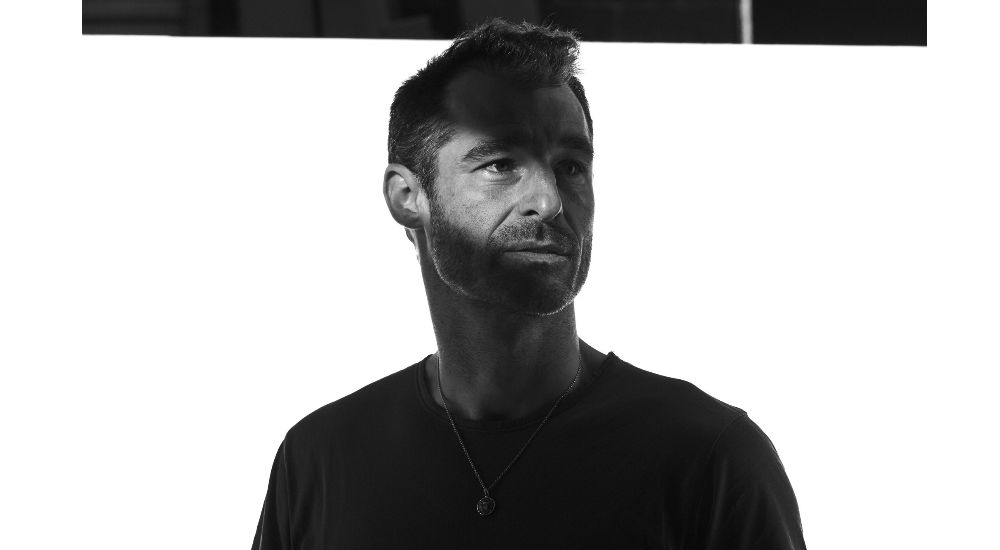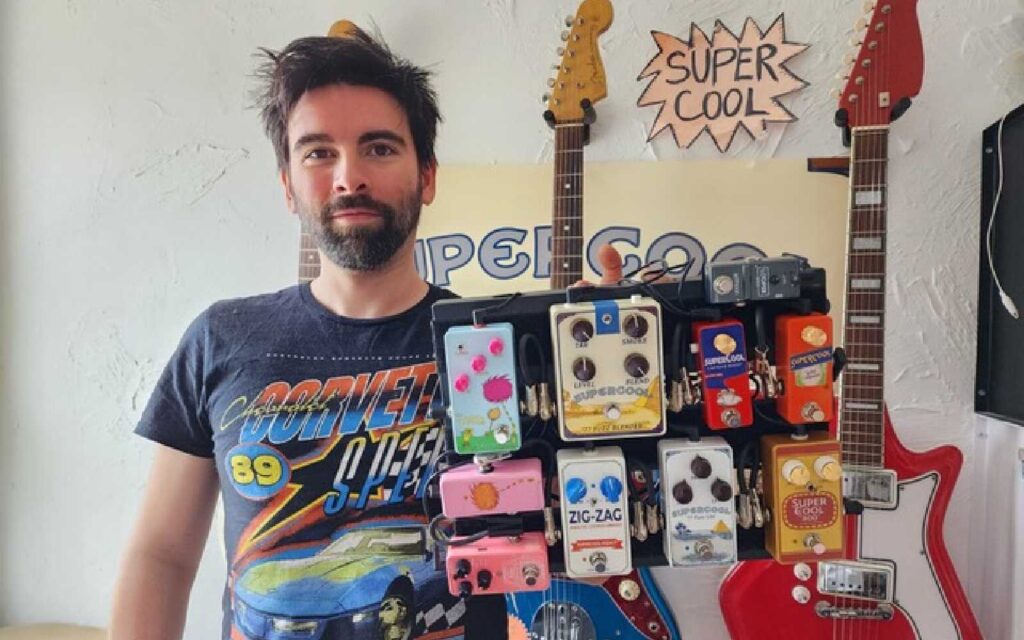On his latest solo project Black Room White Walls EP, Riebl once again confirms his status as one of the country’s most iconoclastic and memorable voices. Marking somewhat of a departure from his previous solo works, Black Room White Walls sees Riebl take influence from unlikely heroes like Rachmaninoff and New Order to showcase a side of his songwriting few have had the privilege of hearing prior, making for one of his most ambitious and exciting solo releases to date.
With the recent release of the project, we asked for Felix to write a few words about some of the songs that have made their mark on him over the years, spotlighting six tracks about travel that have helped him overcome feelings of isolation while on the road or stuck at home.
You can read his responses in full below.
Felix: First up, a qualifier. Music – that airborne magic made up of harmony, melody, and rhythm – is always about travel in some way. You start somewhere and go someplace. The chords pull away from home, return, sometimes they modulate and leave for good, but the memory of that home: chord, or lyric, or melodic line is always there.
People move with and constantly embed songs as nostalgic pillars in their lives. So the topic of this list is ridiculous and practically infinite. You could take any song in the world and call it travel music. I chose these songs today (tomorrow’s list would be different) because they have evoked a sense of travel for me, actual, abstract, and whatever else.
When I’ve been on tour they’ve brought me home. While I’ve been in lockdown, they’ve opened up creative frontiers again. They’ve allowed me to go to places I’ve never been, imagine situations I’ve never experienced, and seek compassion with people I’ve never known.
In no particular order:
1. ‘State Trooper’ – Bruce Springsteen
I’m not sure I’ve ever heard a song that evokes the pensive spirit of white lines in the headlights on a dark highway as well as Springsteen’s ‘State Trooper’ does from the 1982 album Nebraska. You’re not sure what the song’s protagonist has done, but it’s something bad and it’s something true. The driving tension is visceral, and the constant, unyielding guitar line keeps you pinned to the wheel.
“Maybe you’ve got a kid, maybe you’ve got a pretty wife, the only thing that I’ve got has been bothering me my whole life … Mr State Trooper, please don’t stop me, please don’t stop me…” What a line! Add to that the guttural animal howls in the outro and the song haunts you long after it’s faded out.
2. ‘Graceland’ – Paul Simon
This smooth, two-step country-with-a-South-African-lilt Paul Simon gem is a bonafide classic and probably doesn’t need too much explaining. I’m not sure I can think of a song that is as simultaneously heartbreaking as it is uplifting. You slow dance with a smile while hearing the lyrics “Losing love is like a window to your heart, everybody sees you’re blown apart…”
You loosely follow the story of Paul crossing the Mississippi Delta with his nine year old son, emotionally lost, emotionally driven toward some palace of music, symbolised by ‘Graceland’, which is also grace itself. It’s rare, simple, and near pure as it gets. It’s a moment where the greater purpose of travel and music both seamlessly collide.
3. ‘Volando Voy’ – Cameron de la Isla
This song, co-written and immortalised by Cameron de la Isla – who is widely considered one of the truly great flamenco singers – is pure gypsy. He died too early, probably a result of living too hard, and apparently over a million people lined the streets of Spain and wailed on his funeral day.
Next to the percussive harmony of the music and the absolute life force of his voice, the lyrics [translated from Spanish] “Flying I come, flying I go… In love with life even if it hurts…” take you to some essential place of travelling and living each moment to its beautiful, brutal end.
4. ‘My Island Home’ – Warumpi Band
This outback Australian rock classic first recorded and performed by Warumpi Band is a song about yearning for home. The singer, living in Alice Springs with his wife and family, closes his eyes and imagines fishing at home by the sea. Not only does it evoke a vast stretch of country, it also reveals the travelling nature of music in a more essential way. We close our eyes and listen to our favourite songs and long to be in the places we miss.
Even though ‘My Island Home’ speaks of an Indigenous man’s longing for country, it also speaks to a wider non-Indigenous Australian audience about the heartbreak of decisions we make for love. When the snare goes to double time in the outro, you actually feel as if you’re rushing across some internal land from the desert to the sea. Among many other things, this song is a cultural bridge. Try listening to it properly loud and not shedding a tear.
5. ‘Clandestino’ – Manu Chao
When I was about 16, I got my hands on a Manu Chao tape and learned to sing ‘Clandestino’ in Spanish before I ever got the guts to sing anything in English. I don’t know why it was less threatening to sing in a language I didn’t understand. I guess that says something about travelling in itself, and maybe also that with music we can instinctually comprehend what we don’t immediately understand.
‘Clandestino’, sung by punk rock political Spanish / French legend Manu Chao, champions asylum seekers and anonymous workers around the world. Harmonically and melodically it’s almost childish in its simplicity, a feeling contrasted by the lyrics “I come only with my punishment … running is my fate … cos I don’t carry any identity papers.” It’s a song that almost innocently draws you in to imagine the situation of, and empathise with people that society too often ignores, exploits, hides away, and overlooks.
6. ‘Mississippi Goddam’ – Nina Simone
“Hound dogs on my trail, school children sitting in jail, black cat across my path, I think everyday’s going top be my last…”
This protest song against racism in America released in 1964 by the virtuosic and militant Nina Simone is as unsettling as it is powerful: unsettling because it hinges a ‘show tune’ piano-rhythm against the backdrop of lynchings and murders in Alabama, and powerful because the unrelenting drive of the music, matched with the absolute purpose of the lyrics, evokes the marching of people crossing the country going towards Mississippi (as part of the civil rights movement) to put their lives on the line against the most aggressive perpetrators.
Now, 56 years later, and more relevant than ever, this song demands its listeners to go to some internal and external place and look prejudice and hate in the face. “This is a show tune, but the show hasn’t been written for it yet.”
Felix Riebl’s new EP Black Room White Walls is out now.



